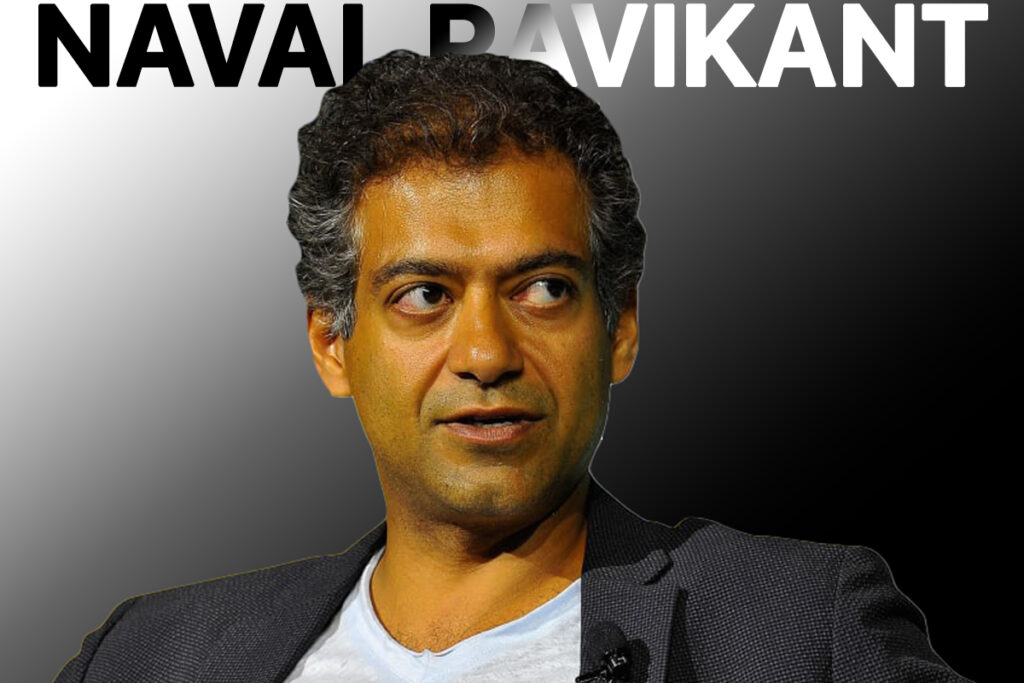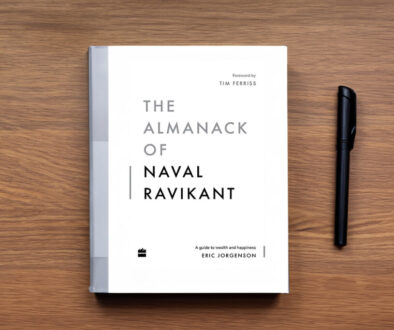How to Get Rich: Lessons from Naval Ravikant’s Podcast
Introduction
This post summarizes the key insights from Naval Ravikant’s podcast where he elaborate from his viral tweetstorm on how to get rich without relying on luck. The tweets cover principles like accumulating specific knowledge, accountability, leverage, judgment, and working hard on the right problems over the long run.
Naval is an angel investor and entrepreneur who co-founded AngelList. He’s made early investments in companies like Twitter, Uber, and others.
The core premise is that making money is a skill you can develop, not a matter of luck. While luck plays a role, you can get rich through deliberate effort by cultivating the right habits and mindsets.
You’re Not Going to Get Rich Renting Out Your Time
The first key point Naval makes is that you’re not going to get rich by renting out your time and labor. To gain financial freedom, you must own a piece of a business, equity, or some income-generating asset.
There are several reasons why trading time for money doesn’t lead to true wealth:
- Your income is directly tied to your inputs. When you’re sleeping or on vacation, you’re not earning.
- It’s difficult to earn non-linearly. For example, a doctor earns based on the hours spent working. But a business owner can make money while sleeping through smart leverage.
- You’re easily replaceable, especially if the job can be taught. Anything that can be taught in school can be automated or outsourced.
- You’re not creating much original value for society. Most replaceable jobs involve repetitively doing the same tasks.
To summarize, when renting out time, you trade earnings for freedom. To get rich, you need leverage and ownership instead of just clocking time.
Wealth vs. Money vs. Status
Naval makes an important distinction between wealth, money, and status:
- Wealth is assets that generate income passively, like a business, real estate, or intellectual property. The key is having assets that make money while you sleep.
- Money is a tool for transferring wealth. Money allows you to get credits and debits from society for value you’ve created.
- Status is your ranking in the social hierarchy. This is a zero-sum game – for someone to gain status, others must lose status.
The goal should be to accumulate wealth, not just make money. Wealth buys lasting freedom and independence. Too many people focus on money or status instead of building wealth.
Avoid Getting Rich Quick Schemes
Naval warns against any promise of getting rich fast, saying “There are no get-rich-quick schemes. That’s just someone else getting rich off you.”
The world is efficient. If there were an easy path to wealth, it would already be exhausted. Be skeptical of anyone selling courses, books, or seminars promising quick riches. They’re likely just profiting off you rather than offering real value.
Building significant wealth requires patience, skill development, judgment, and determination. There are no shortcuts. Embrace the long road.
Avoid Zero-Sum Games
The Problem With Zero-Sum Games
A zero-sum game is one where there must be winners and losers. The gains for one party come directly at the expense of others.
For example:
- In poker, the chips on the table don’t change. For someone to profit, others must lose money.
- In politics, one party winning an election means the other party lost power.
- In sports, one team defeating another requires the other team being defeated.
Zero-sum dynamics lead to rivalries, envy, and tensions. People start competing over limited resources or attention instead of creating value.
You see this in competitive school environments where students sabotage each other instead of collaborating. Or in companies where departments hoard resources and information.
How to Avoid Zero-Sum Games
Naval argues that business and wealth creation do not have to be zero-sum. There are infinite needs and wants to fulfill in the world.
Rather than fighting over a fixed pie, true wealth comes from expanding the pie for everyone.
Some ways to avoid zero-sum dynamics:
- Focus on providing unique value, not just competing on existing turf.
- Build network effects and platform value that relies on cooperation.
- Emphasize win-win negotiation, not winner-take-all.
- Create inclusive environments and business models.
- Establish trust and relationships beyond one-off transactions.
- Avoid status games and prestige competitions.
Basically, structure how you work to make non-zero-sum outcomes likely and natural. Take the high road focused on creating, not competing.
Give Society What It Wants But Doesn’t Know How to Get
The most proven way Naval suggests for getting wealthy is identifying something society wants but doesn’t yet know how to get at scale. Some examples:
- Henry Ford brought affordable automobiles to the mass market.
- Steve Jobs made smartphones ubiquitous.
- Jeff Bezos made online shopping cheap and convenient.
The entrepreneur’s job is to take something currently only accessible to the rich and figure out how to make it affordable to everyone. For example, Uber made having a private driver affordable to most people.
To do this, you need to:
- Identify a real market need that is not being met effectively.
- Create a solution for it.
- Scale it through proper execution and leverage.
This approach requires creativity, specific knowledge, accountability, good judgment, and effective leverage.
Arm Yourself with Specific Knowledge, Accountability, Leverage and Judgment
Naval outlines four key skills for getting rich:
Specific Knowledge
Specific knowledge is rare, valuable knowledge and skills not many people have. For example:
- Knowing how to write viral tweets and articles.
- Understanding a key pain point in an industry.
- Mastering a creative skill like illustration.
Specific knowledge is often overlooked because it:
- Is at the cutting edge of a field, so it’s not common knowledge yet.
- Is highly personalized based on individual talents and interests.
- Can only be gained through active practice, not passive learning.
To build specific knowledge:
- Pursue your innate talents and genuine interests obsessively over the long run.
- Keep exploring and learning new skills over time.
- Gain repeated hands-on experience through high volume of experiments and iterations.
Accountability
Society rewards those who take responsibility for their actions under their own name. Accountability enables credibility and reputation.
To build accountability:
- Work hard and ship products using your real identity. Don’t hide behind anonymity.
- Stick your neck out publicly, be visible, and own the results. Both success and failures.
- Take business risks early on under your own name and build a personal brand.
Accountability is risky but necessary to gain leverage and rewards later on. It demonstrates your integrity over time.
Leverage
Leverage allows you to multiply your results using capital, people, code, or media instead of just pure manual labor.
Forms of leverage:
- Capital e.g. investing money to earn returns. Risky but scales well.
- People e.g. building a team. Challenging to manage but valuable.
- Code e.g. writing software to automate tasks. No marginal cost to scale.
- Media e.g. books, blogs, YouTube. Free leverage to spread ideas.
Focus on permissionless leverage that doesn’t require approval from gatekeepers. Coding and media are the most accessible.
Judgment
Good judgment is vital for making smart decisions and predictions in a world of uncertainty. Judgement enables you to navigate complex challenges and identify the best opportunities.
Judgment requires:
- Broad experience across different fields. Stimulates pattern recognition.
- Skin in the game. Accountability sharpens judgment.
- Rational optimism. Seeing the world clearly, not distorting it with fear.
- A long-term outlook. Ability to anticipate consequences.
With leverage, your judgment gets multiplied, so it becomes even more valuable. That’s why experienced founders and investors earn huge returns on their good judgment.
Build Specific Knowledge
Naval defines specific knowledge as “a skill, relationships, or expertise you can’t be trained for.” It can only be gained through experience over time.
Specific knowledge is the cutting edge that allows you to add unique value and accomplish what others cannot easily replicate. It often comes from genuine intellectual curiosity in a field and pursuing your innate talents.
Examples are persuasion, complex technical skills, investment judgment, negotiation, software expertise, etc. Things society values but doesn’t know how to train at scale.
Build up specific knowledge and you’ll gain leverage. It will set you apart from the competition and provide outsized rewards. This is where fortunes are built.
Conclusion
Naval’s podcast provides an excellent starting point to orient your mindset, habits, and career toward wealth creation.
The key insights include:
- Build specific knowledge, accountability, leverage, and judgment.
- Solve problems society has by creating solutions and scaling them.
- Work hard for decades on the right mission with the right people.
- Set ambitious goals and stick to them despite early setbacks.
While luck always plays a role, you have more control over getting rich than you think. Your mindset, skills, decisions, and determination are the differentiating factors.
What do you think? What resonated with you from Naval’s tips? Feel free to share any key takeaways or questions in the comments!
- Listen the Full Podcast on YouTube: How To Get Rich
- Read the thread on X (formally Twiter) : Thread
- Read The Book Of Naval Ravikant for detail explanation: The Almanack Of Naval Ravikant



